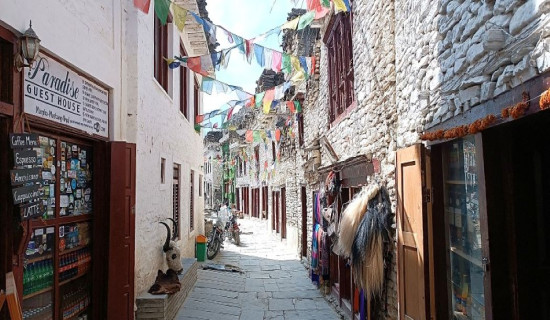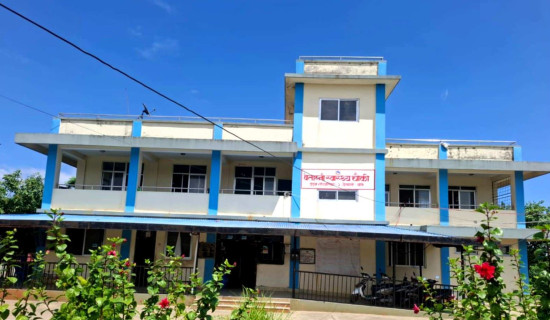- Tuesday, 1 July 2025
Musahar community seeks state support
By Sachin Pokhrel,Itahari, July.1: The Musahar community, which has been left far behind socially, economically, and educationally, has drawn the government's serious attention towards their development, demanding the closure of liquor shops and providing skill-based training.
Leaders of the Musahar community, who live in various districts of Koshi Province, have claimed that alcohol has pushed the Musahar community even further backward and that local liquor shops must be shut down immediately.
At a province-level programme on access to justice for the Musahar community, organised in Itahari by the Ministry of Internal Affairs and Law under the Koshi Province Government, the leaders of the Musahar community expressed concern that alcohol is preventing their community from moving forward and destroying their youth.
They said that they need skills and if given the opportunity, they too can earn livelihood.
At the programme, Central Chairperson of the Nepal National Musahar Association, Chandreshwar Sada, put forward the demand that the constitutional rights of equality and fundamental freedoms guaranteed to every citizen must be implemented in practice.
Although the constitution has given equal rights to all citizens, he complained that Musahars are still forced to live like third-class citizens.
He said that skill-based training is necessary for the women and youth of the Musahar community.
Addressing Minister for Internal Affairs and Law Rewati Raman Bhandari and other administrative officials and representatives, he said, “Outsiders are operating illegal liquor shops in Musahar settlements. I demand the government immediately stop this.”
He said that liquor shops exist in every Musahar settlement and are trapping the community in a swamp.
He said, “The constitution mentions special protection for marginalised communities like the Musahars. But in practice, we are still without rights.”
Salina Sada Musahar said that due to lack of skills among women and youth in her community, they have not been able to break the cycle of poverty, and that skills training is the key to change.
She said, “The government can provide us with training in motorcycle repair, mobile phone repair, or beautician training. We also want to work,” they said collectively.
The main demand of the Musahar community is to control alcohol addiction, provide skill-based training, and implement the rights guaranteed by the constitution in practice. They said that they are not waiting for help, but are in search of opportunities.
The literacy rate of the Musahar community, who mostly reside in eastern Nepal’s Jhapa, Morang, Sunsari, and Udayapur, is less than 20 per cent.
Women and children in this highly marginalised community are even less literate. Due to living in areas with no access to healthcare services, problems such as malnutrition, snakebites, and skin diseases are more prevalent among pregnant women and children.
As Musahars work as daily wage earners, they have no stable source of income. Most families are landless, which has led to crises in both housing and livelihood.
Recently, some local governments have begun providing skills training such as tailoring, motorcycle repairing and beauty parlour operation to help some women and youth in the Musahar community to become self-employed.
Itahari Sub-Metropolitan City spokesperson Dibash Pokhrel informed that skill-based and self-employment programmes targeting the community’s youth are being conducted. Minister Bhandari said that although some work has been done in the Musahar community in recent years, much more remains to be done.
He mentioned that the tradition of child marriage still exists and is causing problems in obtaining citizenship and birth registration, adding, “In your community, there is still a trend of marrying and having children before the age of 18, and this needs to end.” Secretary of the Ministry Ram Prasad Acharya said that the objective of the programme is to expand legal awareness.
Administrative Officer Keshab Khatri of the Sunsari District Administration Office informed participants about the legal provisions and procedures required to obtain citizenship. According to the Ministry of Internal Affairs, around 90 per cent of the Musahar community residing in Koshi Province have still not obtained citizenship. The ministry stated that the aim is to promote literacy regarding citizenship.
Likewise, to provide information on land rights, the Land Commission Sunsari conducted sessions on the necessary documents and evidence required to obtain land ownership certificates for squatters. Most Musahar families are living a squatters’ life.

















